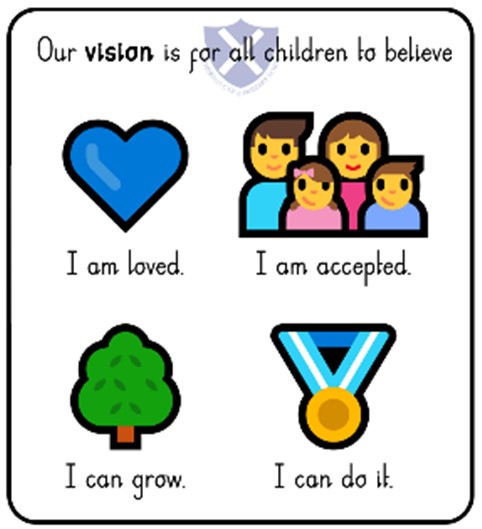Science
Intent
At Netherton Church of England Primary School, we understand the need for all pupils to develop their scientific ability as an essential component of all subjects and as a subject in its own right. Through encouraging children to be inquisitive throughout their time at the school and beyond, we foster a healthy curiosity in children about our universe and promote respect - a key school value - for living organisms and the physical environment.
We believe that a high-quality science education provides the foundations for understanding the world through the specific disciplines of biology, chemistry and physics. Science continues to change our lives and is vital to the world’s future prosperity. All pupils should be taught essential aspects of the knowledge, methods, processes and application of science. They will be encouraged to understand how science can be employed to explain what is occurring, predict how things will behave, and analyse causes.
Science in our school is centred on developing children’s ideas and ways of working that enable them to make sense of the world in which they live through investigation, as well as using and applying process skills. We intend to provide all children, regardless of ethnic origin, gender, class, aptitude or disability, with a broad and balanced science curriculum, with the assurance that – as our school vision states – they ‘can do it’ and ‘can grow’.
Implementation
Through high quality teaching and learning experiences, children are encouraged to explore their outdoor environment and locality, thus developing their scientific enquiry and investigative skills. We strongly believe that any mathematical or English barriers should not impede a child’s scientific learning, thus meaning dialogic learning is a central part to our science teaching.
The science subject leader is responsible for the curriculum design, delivery and full coverage of the 'National Curriculum programmes of study for Science 2014'. This includes regular monitoring to review and quality assure that the coverage, breadth and balance is well-implemented. To ensure high standards of teaching and learning in science, we implement a curriculum that is progressive. We ensure that teachers have high expectations during the weekly science lessons and that any mathematical task (such as measuring or plotting graphs) is pitched at an age-appropriate level to ensure sufficient challenge.
Teaching subject specific vocabulary is a key part of our science curriculum. Pupils are immersed in scientific vocabulary, which aids their knowledge and understanding not only of science but of the world around them. Key vocabulary is identified on the school’s medium-term planning and builds upon that which they have gained in previous years. It is shared and explored at the beginning and throughout each unit, included in the ‘exit ticket’ assessment tasks, and used by both staff and pupils verbally and in written work.
Impact
Our science curriculum ensures children not only acquire the appropriate age-related knowledge linked to the science curriculum, but also skills which equip them to progress from their starting points, and within their everyday lives.
All children will have: a wider variety of skills linked to both scientific knowledge, enquiry and understanding; a richer vocabulary, which will enable them to articulate their understanding of taught concepts; and high aspirations, which will see them through to further study, work and a successful adult life.
Characteristics of a Scientist
- inquisitive
- patient
- resilient
- open-minded
- analytical
- observant
- tenacious
Potential Careers
- astronomer
- astrophysicist
- biochemical engineer
- botanist
- cancer researcher
- chemist
- embryologist
- evolutionary biologist
- geneticist
- geologist
- laser physicist
- marine biologist
- meteorologist
- microbiologist
- microscopist
- molecular biologist
- neurophysiologist
- palaeontologist
- pathologist
- planetary physicist
- plant biologist
- veterinary surgeon
- virologist
- zoologist
Road Map
Knowledge Organisers
Year 1 - Materials and their Properties
Year 2 - Materials and their Properties
Year 2 - Living Things and their Habitats
Year 2 - Biodiversity
Year 3 - Animals including Humans
Year 3 - Scientists and Inventors
Year 4 - Animals including Humans
Year 4 - Reduce, Reuse, Recycle
Year 4 - Living Things and their Habitats
Year 5 - Properties and Changes of Materials
Year 5 - Scientists and Inventors
Year 5 - Animals including Humans
Year 5 - Living Things and their Habitats
Year 6 - Evolution and Inheritance
Year 6 - Animals including Humans
Year 6 - Living Things and their Habitats
Year 6 - Working Scientifically

